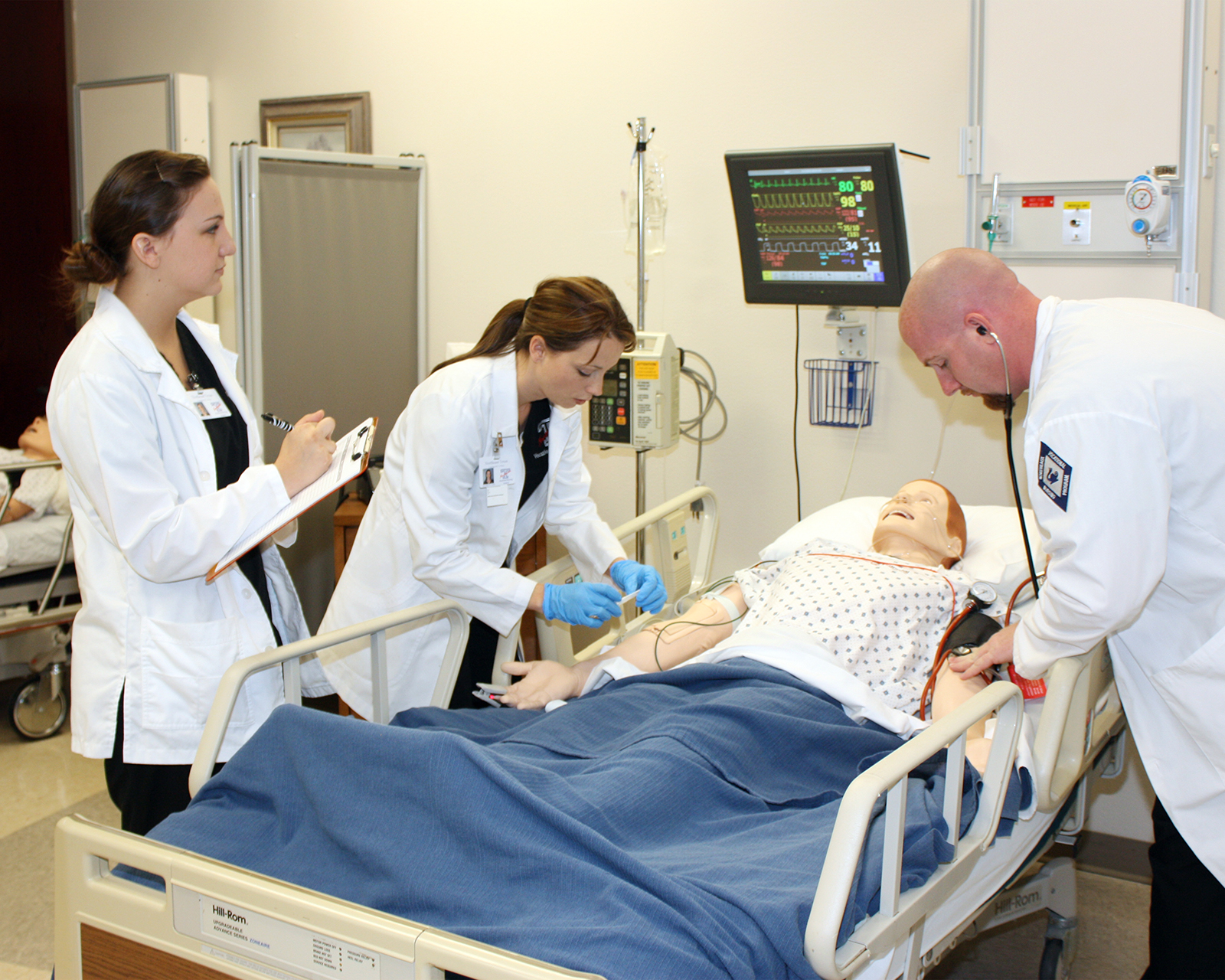
Have you noticed that more of your friends and family are getting sick lately? If so, you?re not alone.
Recent studies show that residents of rural Northeast Texas are among the sickest in the state per capita. Patients in this region suffer from high incidences of chronic diseases and are more likely to pass away from their conditions than residents of other parts of the state. While these statistics may seem grim, work is being done to improve the quality and availability of healthcare for rural Texans. The Northeast Texas Community College Rural Health Sciences program is on the forefront of tackling this challenge as it evolves to meet the ever-changing healthcare needs of the area.
Northeast Texas Health Facts
Currently, NTCC offers more than a dozen healthcare training programs that range from one semester to full associate degrees: certified nurse aide, community healthcare worker, EKG technician, emergency medical services, funeral services (coming in fall 2016), medical assistant, medical coding, medical lab technician, medication aide, mental health technician, nursing (RN and LVN), patient care technology, pharmacy technician, phlebotomy and physical therapist assistant. Additionally, NTCC has articulation agreements with numerous universities that help students transition into four-year programs in health science fields.
?The needs of the workforce are constantly changing. It is very important for NTCC to stay informed about the needs in our region and adapt our programs to meet those needs in a quality and timely fashion,? Dr. Shannon Cox-Kelley, NTCC Dean of Health Sciences, said.
Over the past year alone, NTCC has added several short-term certifications that meet critical employer needs and give graduates an edge when entering the workforce. †One example of this is the patient care technology program, which has been operating for about a year. This certificate program gives students a general knowledge of patient care and basic nursing skills with additional certification in EKG and phlebotomy.
?Healthcare facilities in our region indicated there was a shortage of patient care technicians. We already offered many of the fundamentals of this certification, so NTCC was able to quickly add patient care technology to our curriculum. The response from students was significant and we have already seen three classes of graduates finish their studies and enter the workforce. Additionally, we graduated over 100 CNA?s in 2015,? Cox-Kelley said. ?This is just one example of many. We are constantly working with healthcare leaders and watching trends to adapt to the needs of the future."
Another critical need area that NTCC has been filling for many years, and continues to do so, is in nursing. NTCC offers both vocational (LVN) and associate degree (RN) nursing programs. The state of Texas has suffered from a shortage of nurses in recent years, and continues to have lower numbers of nurses per capita than many other states. There is a particular need for nurses in rural areas.
Despite recent changes in testing and a state requirement to reduce the number of hours required to earn an associate degree in nursing, NTCC continues to produce quality nurses who perform well on their state board exams. The RN program recently raised its passing rate by 3% and plans are in place to raise those numbers even higher to meet and exceed state guidelines.
?Nursing board exams change every three years and become more challenging. We have recently revamped our nursing curriculum to provide our students with more advanced critical thinking skills that will not only make them more successful on their exams, but will also make them better nurses,? Tonya Taylor, NTCC Director of Nursing, said.
NTCC is one of only 13 nursing programs in the state that has transitioned from a medical model to a critical thinking model. This allows students to focus on fundamental concepts rather than memorizing lists of facts and information.
?We want our nurses to be thinkers and problem solvers. They need to be able to look at patient care from a broader perspective and have the skills necessary to determine the best course of action on a case-by-case basis,? Taylor said. ?We are providing our nurses with that foundation.?
Nursing is not the only program adapting with the times. The Medical Lab Technician (MLT) program recently added a course in Molecular Diagnostics to its curriculum.
The MLT staff learned at a conference in Cincinnati that larger hospitals and comprehensive medical labs were moving to molecular diagnostics to analyze biological samples. This method allows labs to get results quicker than the traditional culture method, and can result in patients being diagnosed in a few hours rather than weeks. NTCC will be one of only three schools ? and the only community college - in Texas teaching this technique.
?I am constantly amazed by the dedication and creativity of our health sciences team. They are very good about staying on top of what is happening in their field and making sure that our programs stay ahead of the game,?†Cox-Kelley, said.
NTCC Health Sciences programs accept students at various times of the year and some are selective admissions. Students interested in any of these programs are encouraged to speak with a health sciences advisor in order to determine which program best fits your needs and goals.
?All indicators point to health science careers being in high demand for the foreseeable future. If you are looking for jobs that are both rewarding and lucrative, I encourage you to come see what we have to offer,? Cox-Kelley, said.
New students can begin classes as soon as January 2016. To learn more about NTCC Health Sciences, visit ntcc.edu/healthscience or call 903-434-8124.
